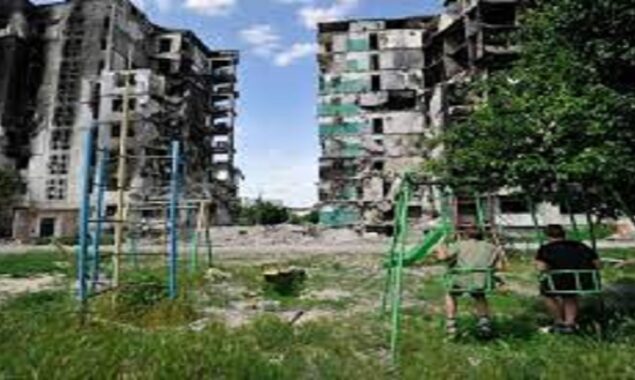
- The Organisation for Economic Co-operation and Development (OECD) slashed its 2022 growth forecast and projected higher inflation.
- The Paris-based organisation, which represents 38 most developed countries, is the latest institution to predict lower GDP growth due to the Ukraine conflict.
The OECD has cautioned that the world economy will pay a “powerful value” for Russia’s invasion of Ukraine as it sliced its 2022 development figure and projected higher expansion.
The Paris-based association, which addresses 38 for the most part evolved nations, is the latest organization to anticipate lower GDP development because of the contention, which has sent food and energy costs taking off.
In its most recent economic standpoint, the Organisation for Economic Co-activity and Development said worldwide GDP would develop by three percent in 2022 — down strongly from the 4.5 percent assessed in December.
The OECD likewise multiplied its figure for expansion among its individuals — which range from the United States to Australia, Japan, and Latin American and European countries — to 8.5 percent, its most significant level starting around 1988.
Read more: The government of KPK is converting all economic zones to solar energy
“The world is set to follow through on a heavy cost for Russia’s conflict against Ukraine,” composed the OECD’s main financial specialist and delegate secretary-general, Laurence Boone, adding that a “humanitarian emergency is unfurling before our eyes”.
“The degree to which development will be lower and expansion higher will really rely on how the conflict advances, yet it is clear the most unfortunate will be hit hardest,” Boone said.
“The cost of this war is high and should be shared.” Before the conflict broke out, the standpoint had appeared “comprehensively ideal” for 2022-23, with development and expansion expected to get back to business as usual after the overwhelming Covid-19 pandemic, said the OECD.
In any case, “the attack of Ukraine, alongside shutdowns in significant urban communities and ports in China because of the zero-Covid strategy, has produced another arrangement of unfriendly shocks,” it said.
The OECD should distribute its viewpoint in March, yet it deferred its point by point assessment as of not long ago due to uncertainty over the conflict. At that point, it said the contention could cut worldwide GDP development by “more than one rate point”.
The World Bank updated its own figures on Tuesday, lowering its worldwide development gauge from 4.1 percent to 2.9 percent. The IMF cut its estimate by nearly one highlight 3.6 percent in April.
The OECD cut its development figure for the United States from 3.7 percent to 2.5 percent and that of China, the world’s second greatest economy, from 5.1 percent to 4.4 percent.
The eurozone’s GPD is presently seen developing by 2.6 percent rather than 4.3 percent while Britain’s viewpoint was brought down to 3.6 percent from 4.7 percent.
Paris-based association is most recent organization to anticipate lower GDP development because of contention, which has sent food and energy costs taking off
The OECD noticed that commodity costs had risen, hitting genuine pay and spending, “especially for the most vulnerable families”.
“In many developing business sector economies the dangers of food deficiencies are high given the dependence on agricultural sends out from Russia and Ukraine,” it said.
Read more: In 11 months, workers’ remittances increased by 6.3 percent to $28.4 billion
The report cautioned that the “impacts of the conflict in Ukraine might be much more prominent than expected”, raising as an illustration a situation of Russia slicing gas supplies to Europe.
As national banks fix their money related strategies to counter expansion, the report said sharp increments of interest rates could likewise hit development more than expected.
The Covid pandemic, meanwhile, could get downright ugly.
“New more forceful or contagious variations might arise, while the use of zero-Covid arrangements in huge economies like China has the potential to drain worldwide interest and upset supply for quite a while to come,” the OECD said.
Confronted with these difficulties, governments expected to safeguard the most powerless from the economic shockwaves, it added.
Temporarily, “temporary, opportune and very much designated” financial measures would help the most unfortunate families, the OECD said.
Over the medium-and long haul, legislatures would need to put more in clean energy and guard spending. “The world is as of now taking care of Russia’s hostility,” composed Boone.
“The decisions made by policymakers and residents will be critical to deciding how that cost will be circulated across individuals and nations.”
Read More News On
Catch all the Business News, Breaking News Event and Latest News Updates on The BOL News
Download The BOL News App to get the Daily News Update & Follow us on Google News.




